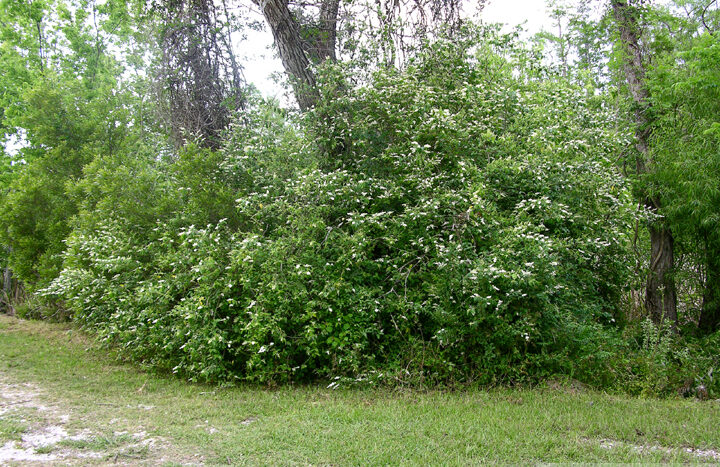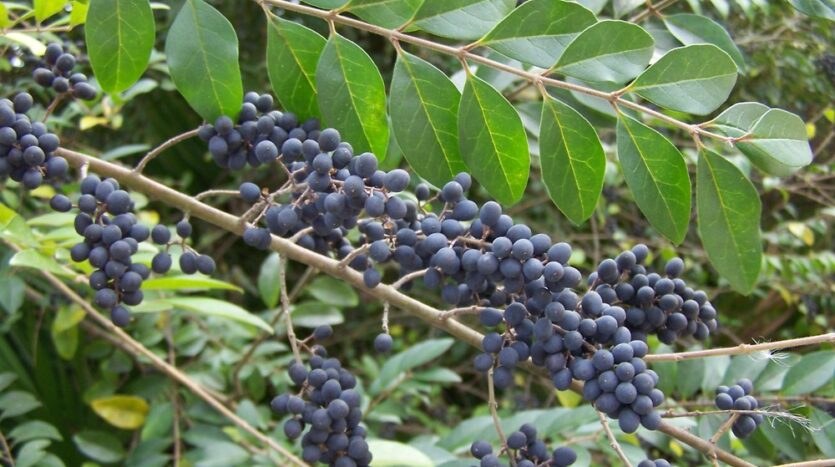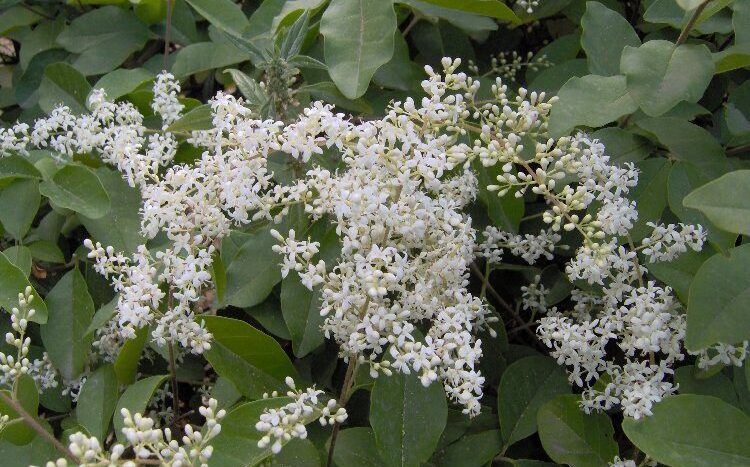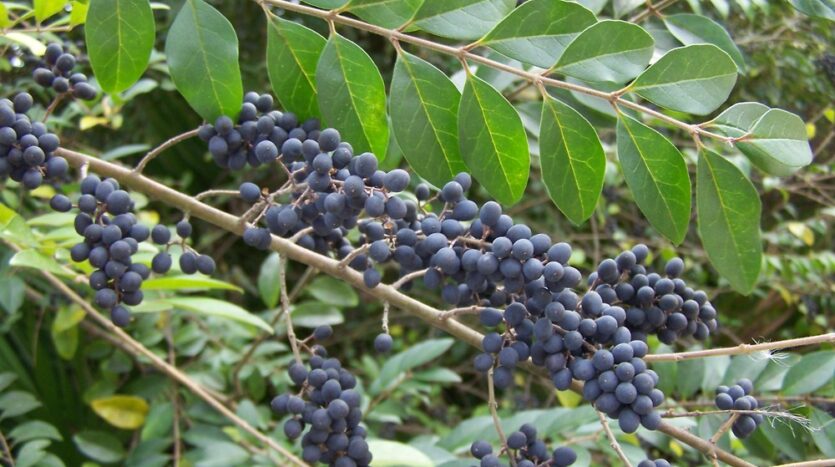8/31/2017- Privet
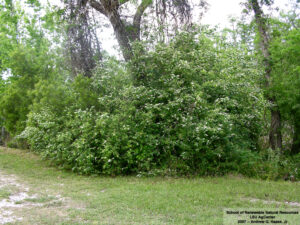
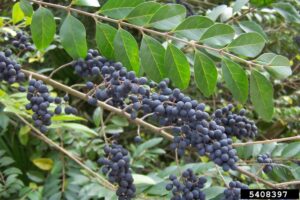
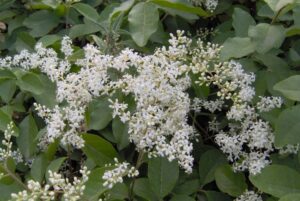
By Meaghan English, TrueSouth Properties Wildlife Specialist
It’s time to discuss everyone’s least favorite invasive species…PRIVET. This is the most invasive species in the South. There are many different cultivars of privet but each one is just as prolific as the next. What many people don’t know about privet is that the berries that are produced from summer to spring are very poisonous!
All cultivars of privet are pretty much the same across the board. Chinese privet, Ligustrum sinense, is the most invasive of all the privets. The plant itself can grow up to heights of 30 feet with long, multistemmed branches. The shrub/plant itself also has multiple trunks coming out of the ground. Each different sub species of privet easily hybridizes with another, making it very different to distinguish between sub species. The bark on the shrub is very light gray and the leaves are opposite from each other along the stems. Chinese privet has very small leaves while other cultivars have larger leaves. Privet flowers in the spring to early summer. The flowers are clusters at the end of branches and are usually white in color. The smell the flowers produce cause sinus irritations in many people. California is home to privet with the worst fragrance. As I said, the berries are poisonous so do not touch them! So how did this very unpleasant invasive get here? It was introduced from China and Europe around the 1800s for use as ornamentals. They were valued for their use as “border shrubs”. Fortunately for us in the South, deer have developed quite a hankering for privet and will browse on it when it is young. The most aggravating characteristic of privet is its ability to form huge, dense thickets. Per usual, this invasive also favors fencerows and right of ways. Animal dispersed seeds are the number one reason for the rapid spread of this species.
I have been told by many foresters that the best way to eradicate privet is to burn it, push it up, and then spray it by helicopter. All THREE methods must be applied to even make a dent in a privet thicket. If privet is on its way to taking over your property, it is very important to take action now!


